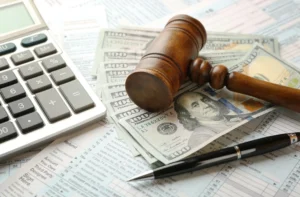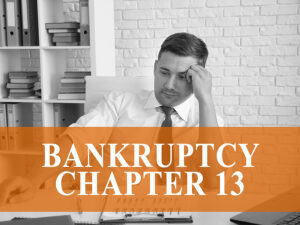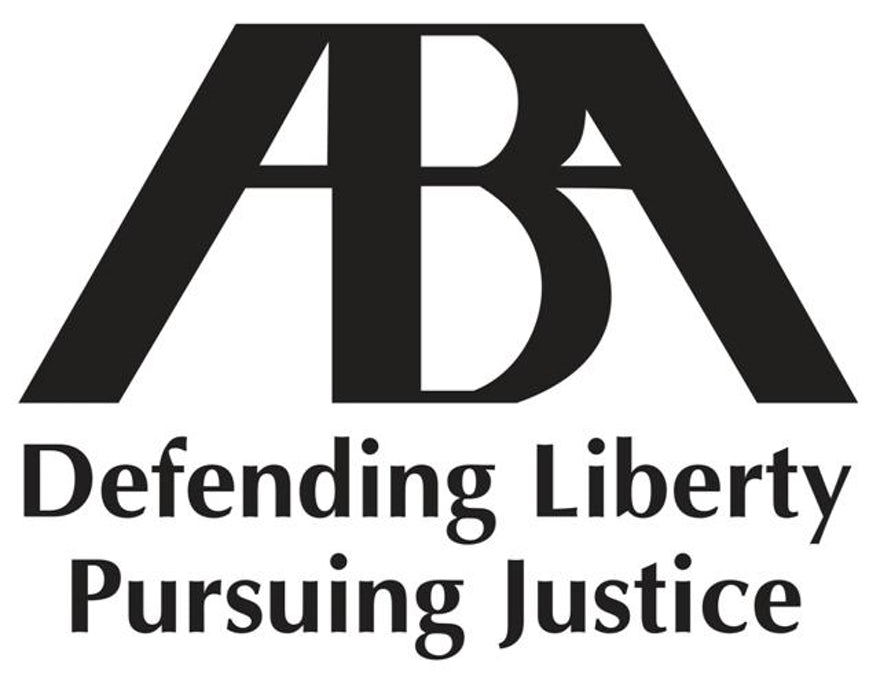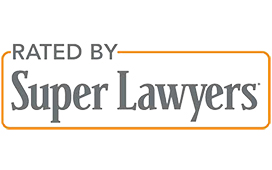Chapter 13 Bankruptcy Lawyers Las Vegas
All You Need to Know About Chapter 13 Bankruptcy | Expert Advice from Las Vegas Lawyers
Las Vegas Debt Relief: Find a Fresh Start with Chapter 13 Bankruptcy
Crushing debt can feel like a suffocating weight. Chapter 13 bankruptcy offers a structured path to financial freedom, allowing you to reorganize your debt and regain control of your finances.
Nevada Bankruptcy Attorneys: Your Experienced Chapter 13 Guides
As a leading Las Vegas bankruptcy firm with decades of experience, we understand the complexities of Chapter 13. We’ll create a personalized repayment plan and advocate for your interests every step of the way.
Why Choose Us for Your Las Vegas Chapter 13 Bankruptcy
- Proven Track Record: We’ve helped countless Las Vegas residents achieve debt relief and a brighter financial future.
- Personalized Approach: Your situation is unique. We tailor our strategies to your specific needs and goals.
- Compassionate & Knowledgeable: We clearly explain the process and offer support during this challenging time.
Stop the Stress, Explore Your Options
Schedule a confidential consultation with Nevada Bankruptcy Attorneys today. Let’s discuss if Chapter 13 is the right path for you.
- Chapter 13 Bankruptcy provides a structured income-based repayment plan and asset protection from creditors.
- Eligibility requirements for Chapter 13 bankruptcy vary by state, with duration of up to 7 years impacting credit report.
- Working with an experienced Las Vegas lawyer can help individuals navigate the complexities of filing for Chapter 13 bankruptcy and access foreclosure mediation programs in Nevada.
Understanding Chapter 13 Bankruptcy

Chapter 13 bankruptcy, often referred to as a “wage earner’s plan,” is a legal route that allows individuals with a regular income to restructure their debts, providing relief from specific obligations and preserving property. It’s designed for individuals and married couples; corporations and LLCs are not eligible to file. A primary benefit of Chapter 13 bankruptcy is eliminating unsecured debts and preserving crucial assets, facilitating debtors in compensating for some debts while discharging others.
The Chapter 13 discharge releases the debtor from all debts provided for in the repayment plan, except for certain debts, like child support, that are non-dischargeable. Bankruptcy attorneys are instrumental in determining if Chapter 13 is the optimal choice for an individual, and they provide guidance throughout the whole process.
The timeline for completing a Chapter 13 bankruptcy typically spans several months and includes stopping foreclosure proceedings if applicable.
Key Features of Chapter 13 Bankruptcy

Three key features of Chapter 13 bankruptcy set it apart from other debt-relief options: creating a repayment plan based on one’s income and expenses, asset protection from creditors, and meeting specific eligibility requirements. These features provide a structured approach to managing debt while safeguarding hard-earned assets.
We will now delve into each feature more comprehensively.
Repayment Plans
A debt repayment plan is a central component of Chapter 13 bankruptcy. It involves making regular payments over a 3-5 year payment period to satisfy debts, with any remaining unsecured debts discharged upon completion. The duration of the plan is based on the debtor’s income.
Key points about a repayment plan in Chapter 13 bankruptcy:
- Regular payments are made over a 3-5 year period
- Remaining unsecured debts are discharged upon completion
- The duration of the plan is based on the debtor’s income
- Priority claims must be settled in full unless the creditor agrees to other conditions
- For a domestic support obligation, the debtor has to commit their entire disposable income to a 5-year plan
The repayment plan necessitates monthly debt payments to a bankruptcy trustee, who subsequently disburses the payments to creditors. Failure to make these payments may result in the dismissal of the case, emphasizing the importance of having a steady income and a realistic budget to ensure successful completion of the plan.
Asset Protection
One of the most appealing aspects of Chapter 13 bankruptcy is its focus on asset protection. Debtors can retain their property, such as their home, while making payments on their repayment plan. To maintain these assets, the debtor must adhere to the payment plan and make the required payments to the creditors outlined therein.
Chapter 13 bankruptcy offers the following benefits:
- An automatic halt on creditor actions, preventing foreclosure of the debtor’s home
- The ability to keep assets that secure certain debts, as long as the repayment plan provides the owner of the secured debt with an amount equal to or larger than the value of the collateral
- This protection provides a sense of security and peace of mind during the bankruptcy process.
Eligibility Requirements
Eligibility for Chapter 13 bankruptcy is contingent on the debtor’s total unsecured debt and secured debt. Individuals with unsecured debts below $419,275 and secured debts below $1,257,850 are qualified for Chapter 13 bankruptcy. Additionally, the means test determines if an individual’s income is higher than the state’s median income. They may only be eligible to file for Chapter 13 bankruptcy if their unsecured creditors are also considered. If so, their debts can be restructured in a repayment plan.
Credit counseling is another prerequisite in Chapter 13 bankruptcy, offering financial education to the debtor and assistance in formulating a debt management plan. If a debtor’s bankruptcy petition was dismissed due to willful failure to appear before the court or comply with orders of the court during a bankruptcy proceeding, they cannot file under Chapter 13 or any other chapter of the bankruptcy code.
The Chapter 13 Bankruptcy Process in Nevada

The process to file for Chapter 13 bankruptcy in Nevada consists of multiple steps, commencing with submitting a petition to the bankruptcy court. In addition to the petition, the debtor must provide financial information, including schedules of assets, liabilities, income, and expenditures, as well as a statement of financial affairs. The filing fee for Chapter 13 bankruptcy in Nevada is $313.
Once the petition is filed, the debtor must go through the following steps:
- Attend a meeting of creditors
- Participate in a confirmation hearing, where a judge evaluates and decides whether to approve the proposed repayment plan
- If the plan is approved, set up a schedule for making up any delinquent payments
- Collaborate with a Chapter 13 trustee to disburse those payments to creditors
Comparing Chapter 13 and Chapter 7 Bankruptcy

While Chapter 13 and Chapter 7 bankruptcy both aim for debt relief, their approaches to debt management vary. Chapter 7 bankruptcy involves liquidating the debtor’s non-exempt assets to pay creditors, while Chapter 13 focuses on creating a repayment plan to pay off debts over time. This distinction is crucial when it comes to asset retention. In Chapter 7, non-exempt assets are liquidated; in Chapter 13, debtors can retain their property by making the required payments to their creditors.
Certain debts, such as child support, alimony, and specific taxes, are non-dischargeable in both Chapter 7 and Chapter 13 bankruptcy. Despite these similarities, understanding the differences between the two types of bankruptcy is crucial to determining the best course of action for your financial situation, especially when dealing with tax debt.
Duration of Chapter 13 Bankruptcy and Its Impact on Credit Report

Chapter 13 bankruptcy stays on your credit report for seven years from the date of filing. While this may seem detrimental to your creditworthiness, it’s important to consider that Chapter 13 bankruptcy may cause less damage to your credit than failing to repay your debts. Adhering to the repayment plan and ultimately discharging your remaining unsecured debts demonstrates financial responsibility and commitment to resolving your financial troubles.
Proactive measures are necessary to rebuild your credit post-bankruptcy. These include paying any remaining debts on time, using credit responsibly, and monitoring your credit report for accuracy. With diligence and patience, you can improve your credit and achieve a healthier financial future.
Filing for Chapter 13 Bankruptcy: Essential Steps

The initial step to file for Chapter 13 bankruptcy is to assemble all required documentation, which includes tax returns, bank statements, and pay stubs. Analyzing your debts and creating a realistic budget is crucial to developing a feasible repayment plan. Prior to filing, you must complete a credit counseling course, which assesses your financial situation and offers guidance on debt management.
Once you’ve completed the credit counseling course, you will need to fill out the required forms and submit them to the bankruptcy court, along with the filing fee. After filing, you will attend a meeting with the trustee and a confirmation hearing, where a judge will evaluate your proposed repayment plan and decide whether to approve it. If approved, you will begin making payments to the Chapter 13 trustee, who will distribute them to your creditors according to the plan.
Working with a Chapter 13 Bankruptcy Lawyer in Las Vegas

Steering through the complexities of Chapter 13 bankruptcy can be daunting, however, the assistance of an experienced bankruptcy lawyer in Las Vegas can smoothen the process and alleviate stress. These professionals are well-versed in bankruptcy law and can assess your eligibility for Chapter 13, guide you through the filing process, and represent you during meetings and hearings.
To explore your options and determine the best course of action for your financial situation, consider scheduling a free, no-obligation consultation with a Las Vegas Chapter 13 bankruptcy lawyer. With expert guidance and support, you can confidently tackle your financial troubles and work towards a debt-free future.
Navigating Mortgage Issues and Foreclosure Mediation

Chapter 13 bankruptcy provides a chance to settle mortgage disputes, including mortgage payments, and avert foreclosure using the Mortgage Modification Mediation Program (MMM). This program connects debtors with mediators who can help negotiate a resolution with mortgage lenders, potentially saving your home from foreclosure.
During the mediation process, various options may be explored, including loan modification, short sale, or a deed in lieu of foreclosure. Being well-prepared for mediation and understanding your financial situation is vital to maximizing the effectiveness of the process and achieving the best possible outcome for your home and mortgage.
Overcoming Financial Hardships During Chapter 13 Bankruptcy

Despite thorough planning, unexpected situations may surface during the Chapter 13 bankruptcy process, posing challenges to the completion of your repayment plan. In such situations, you may request a hardship discharge if you can demonstrate that your inability to complete the plan is due to circumstances beyond your control and not your fault. To qualify for a hardship discharge, creditors must have received at least as much as they would have in a Chapter 7 liquidation case, and modification of the plan must be deemed impossible.
If you encounter financial hardships during Chapter 13 bankruptcy, it’s crucial to communicate with your bankruptcy attorney and trustee to explore potential solutions. By remaining proactive and adaptive, you can overcome challenges and successfully navigate the bankruptcy process.
Summary

Chapter 13 bankruptcy provides a powerful tool for individuals struggling with debt, offering a structured approach to debt management while protecting valuable assets. By understanding the key features of Chapter 13 bankruptcy, the filing process, and the differences between Chapter 13 and Chapter 7, you can make informed decisions about your financial future.
With the guidance of experienced bankruptcy attorneys in Las Vegas, you can confidently navigate the complexities of the bankruptcy process, resolve mortgage disputes, and overcome financial hardships. Remember, bankruptcy is not the end – it’s a fresh start, offering you the opportunity to regain control of your finances and achieve a debt-free future.
Frequently Asked Questions
What does Chapter 13 bankruptcy do?
Chapter 13 bankruptcy is a form of debt relief that enables individuals with regular income to develop a repayment plan for all or part of their debts over a three to five year period, while under court protection and supervision. It can also stop foreclosure proceedings and allow debtors to pay off their debts with a reduced amount owed.
Is Chapter 7 or 13 worse?
Though Chapter 7 stays on your record longer, it can also be a fast way to settle eligible debts and start rebuilding your credit score. In comparison, filing for Chapter 13 bankruptcy could take a long time and you would have to pay off all of your debts over several years, but you can hold on to your assets.
Is Chapter 13 bankruptcy worth it?
Chapter 13 bankruptcy is a viable option if you have a steady income but are struggling to pay off your debt. It can stop creditor harassment, protect assets and allow for more control of finances compared to Chapter 7 bankruptcy.
What’s the difference between Chapter 11 and Chapter 13?
The main difference between Chapter 11 and Chapter 13 bankruptcy is that Chapter 11 doesn’t have debt limits or income requirements, while Chapter 13 does. Additionally, Chapter 13 requires repayment within five years, while Chapter 11 allows for an extended period.
What disqualifies you from Chapter 13 bankruptcy?
If you do not earn enough or your income is not steady, the bankruptcy court might not allow you to file for Chapter 13 bankruptcy.







